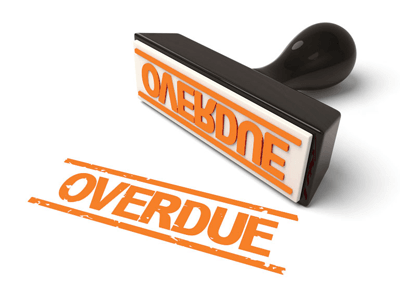
Chasing repayments for your business can be a cat and mouse game at times. So here are some of the most common excuses for non-payment and some tips on how to respond to them.
1. "The cheque is in the post"
Though this is sometimes true, it generally means the customer is buying time while you wait in receipt of payment. You may want to reconsider your use of this method of payment, as it is rapidly becoming very outdated. Many companies now simply refuse to accept this form of payment because of the time it takes to process and the high bounce rate due to its strict regulations. Try putting in place a more instant payment method such as electronic bank transfer or an online payment system such as PayPal.
2. "We haven't received an invoice"
Some customers will say they haven't received your invoice. Once again this is often a delaying tactic. However, you should ensure that you regularly keep your customer database up to date. Invoices may not have been delivered to the correct person or address. Also try emailing invoices rather than sending them by post. It is faster and if there is a problem with the address you will receive a failed delivery notification.
3. "The relevant person is not available"
This is another common response you may get when trying to follow up an invoice. Again, this could be because you aren't directing the invoice to the correct individual. Check the name against your database and make any amendments as necessary. Try to ensure that you are not targeting a general company contact or information point. Wherever possible get an actual named contact or if this is not possible try contacting a director or the accounts/ finance department.
4. "But our term of payment is 60days"
It is entirely possible that your business and your clients have different terms of payment. Yours might be 30 days by default while a customer’s may be 60 days. Remember, all that matters is what is agreed on the dotted line. You must ensure that your terms of payment on any contract or sales document are made clear to the customer. To ensure a customer does not use this excuse, send a copy of your terms to be signed and agreed before supplying goods to your customer.
5. “We’ll pay you when we get paid”
Some clients claim to be awaiting payment from their own customers, unless stated otherwise you still have legal rights to be paid within the agreed period. You should also know that you are potentially entitled to charge them interest under the ‘Late Payment of Commercial Debts (Interest) Act”.
We hope we have given you some useful pointers as to how best to avoid or handle these common excuses from your customers. Remember that your company is owed money and you have the right to chase up payment. Failure to do so may affect your company cash flow and ability to pay your bills. Ultimately if necessary JP Credit Solutions can offer highly competitive rates and a full range of solutions to help you to recover your outstanding debts.
To ensure you do not miss out on similar articles and legal updates, please subscribe up to our newsletter.

